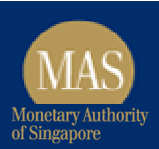Investment Strategies
Singapore Reiterates Defence Of Forex Regime From US Pressure

Singapore has repeated that it does not manipulate its currency for export purposes.
Singapore’s government has reiterated that it does not manipulate its currency to gain an unfair exporter advantage, responding to recent US moves to put the Asian city-state, and Malaysia, on a foreign exchange watch-list.
In late May the US government, which has taken an aggressive posture towards a number of countries' trade practices in recent months, said that no major trading partner met its currency manipulation criteria, but nine countries merited "close attention". It added Singapore and Malaysia to the list.
The addition of Singapore, a wealth management hub and important financial centre, to the Washington list has concerned its leaders, central bank, and the Monetary Policy of Singapore. The country is an important wealth management hub and its foreign exchange rate regime - a component of how the jurisdiction controls inflation - has been seen as important. (Hong Kong, meanwhile, pegs its currency to the US dollar, which can sometimes put pressure on the domestic Hong Kong economy.)
“MAS [Monetary Authority of Singapore] has made it clear that it does not use the exchange rate to make Singapore’s exports more competitive,” Tharman Shanmugaratnam, senior minister and minister in charge of MAS, said recently in response to a question from lawmakers.
“MAS continues to be in constructive dialogue with the US Treasury to ensure that Singapore’s monetary policy framework, including the role of foreign exchange intervention operations, are well-understood,” he continued.
The Asian jurisdiction manages the Singapore dollar nominal effective exchange rate (S$NEER) inside a policy band, rather than other central banks which conduct monetary policy by targeting interest rates, the minister argued.
Other rading partners on the list are China, Germany, Ireland, Italy, Japan, South Korea and Vietnam.
Malaysia has also defended its system, saying that US actions will not affect its economy.
A number of Asia-Pacific countries' exchange rates, some of which were pegged to the dollar, as in the case of Thailand, broke up dramatically more than 20 years ago in the region's financial crisis. Many of these nations have since built large forex reserves to avoid a repeat of the episode and have shifted towards more long-term debt financing to reduce exposure to US interest rate shifts.